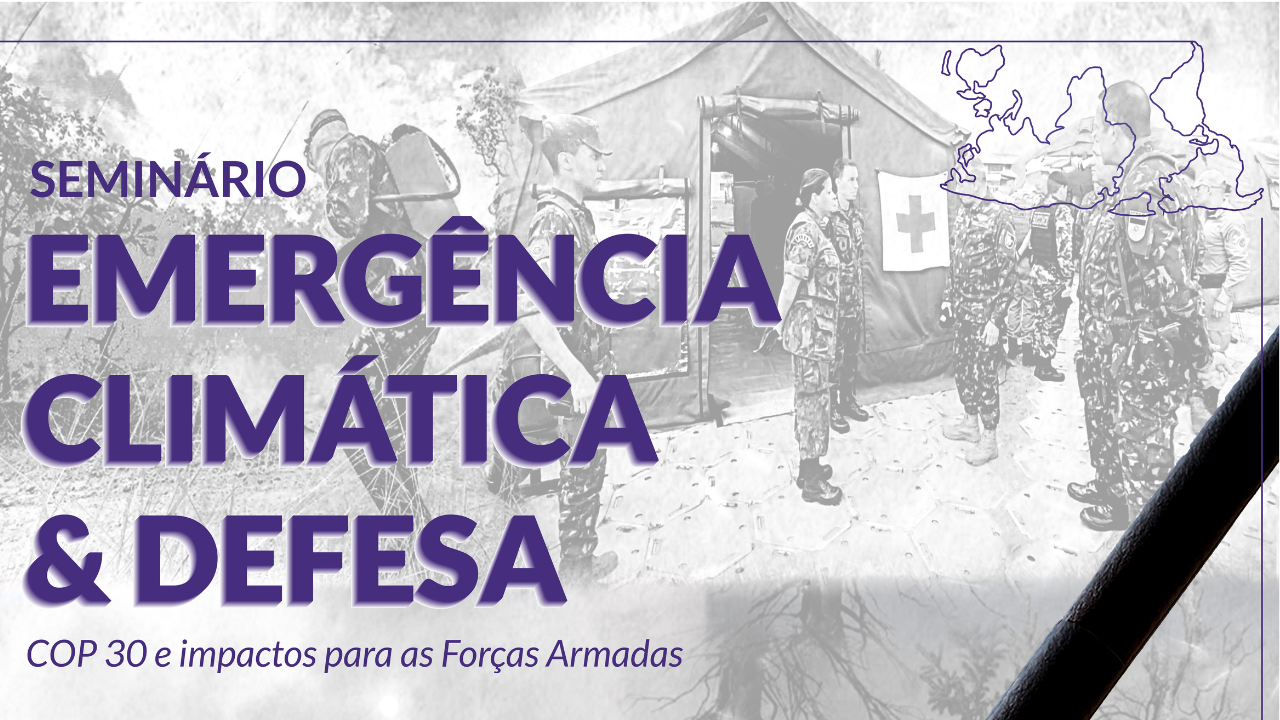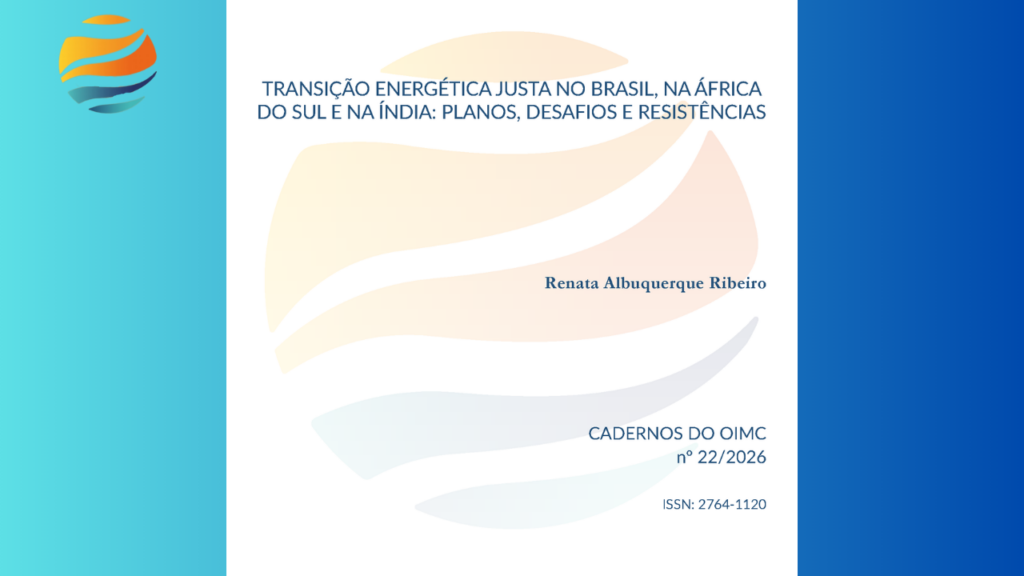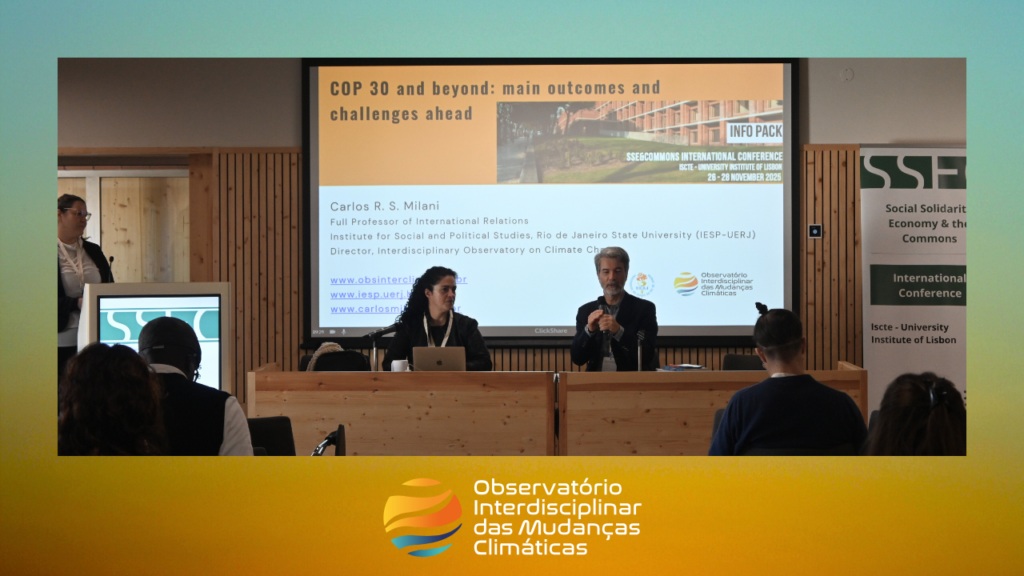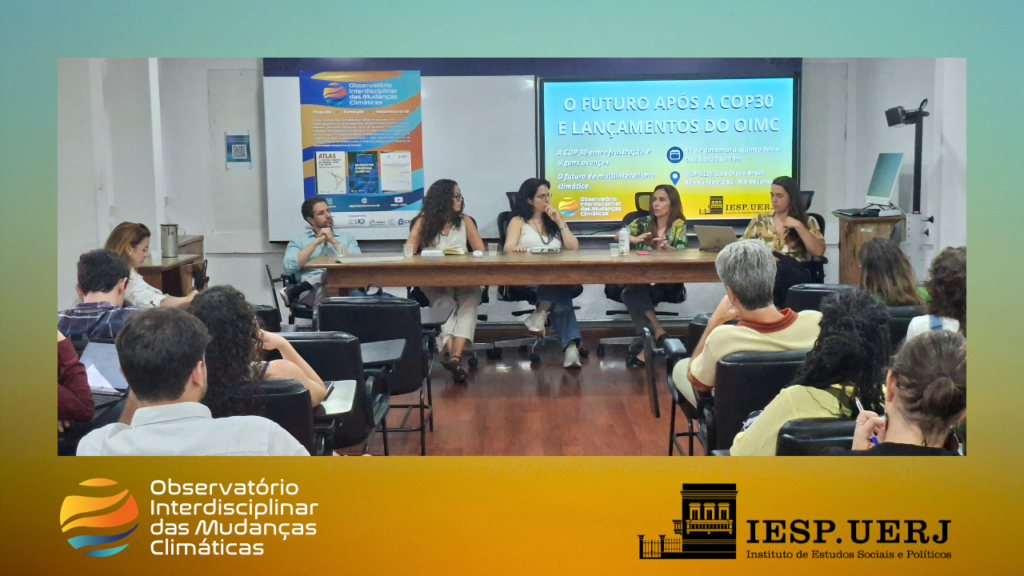On Tuesday, 25 November 2025, the Interdisciplinary Observatory on Climate Change, in partnership with the Graduate Programme in Military Sciences at the Brazilian School of Army Command and General Staff (PPGCM/ECEME), will hold the International Seminar on Climate Emergency and Defence: COP 30 and its impact on the Armed Forces. Held in person at the headquarters of the Army Command and General Staff College (ECEME) in Rio de Janeiro (Praça General Tibúrcio, nº 125 – Urca), between 8 a.m. and 6:30 p.m., this event gathers experts from various fields of study in five conferences with the purpose of discussing how Brazil’s defence policy can be formulated and implemented to address growing environmental challenges, especially in light of the securitisation process of the international climate change regime.
After an institutional opening presented by professors Rubens de S. Duarte (ECEME) and Ana Paula Tostes (UERJ), the seminar opens with a keynote lecture by British internationalist Rita Floyd(University of Birmingham), with the participation of Prof. Pablo Saturnino Braga (DRI-UERJ) as discussant. The rest of the programme also includes round tables led by OIMC researchers runa Bataglia (IESP-UERJ), Letícia Britto dos Santos (IESP-UERJ) and Luan Werneck-Costa (UERJ). Registration to participate in the event is open until 20 November.
Check the complete schedule, in Portuguese, below:
Brazil is a necessary player in the international climate agenda. In addition to its scale (territorial, demographic and economic), the country is one of the world’s five largest emitters of greenhouse gases and is home to the world’s largest rainforest: the Amazon. It is no coincidence that the Brazilian government understood that it would be pertinent to hold COP 30 in Brazil, bringing to its territory negotiations on international standards that will inevitably impact the country’s autonomy. This diplomatic leadership is a Brazilian tradition, as demonstrated at ECO-92 and Rio +20. It is alarming, however, that despite the facts announced above, there is no clarity in Brazil about the impacts of the climate emergency on defence policy (let alone on the actions of the Armed Forces). With COP 30 on the horizon, it is essential to discuss Brazil’s national interests and the consequences of climate securitisation.
The International Seminar on Climate Emergency and Defence: COP 30 and impacts on the Armed Forces is organised by the Observatory and PPGCM/ECEME, with support from the Rio de Janeiro State Research Support Foundation (Faperj).



